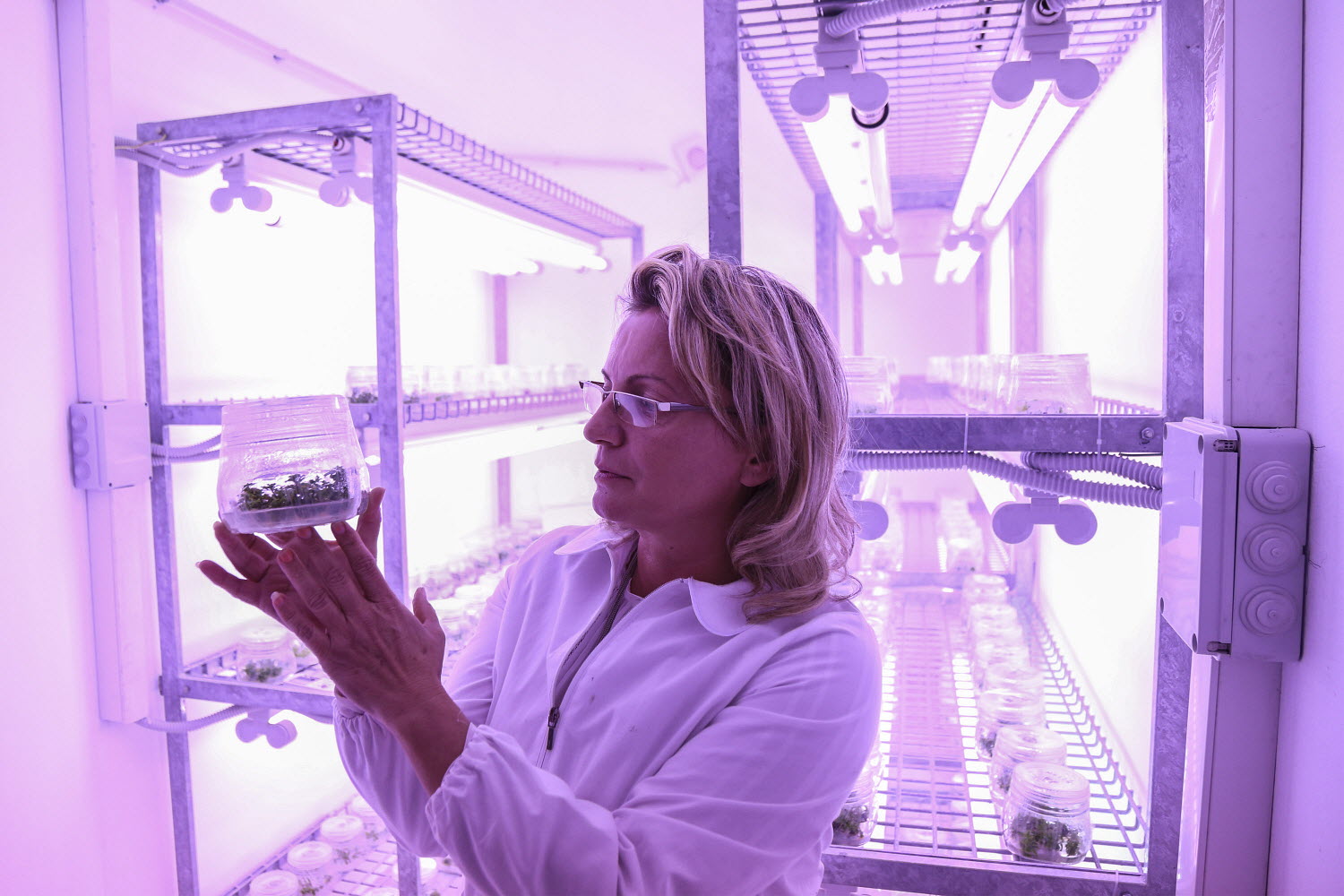FAO hosts first-ever Science and Innovation Week for Europe and Central Asia

©FAO/Gent Skhullaku
Hosted by the Food and Agriculture Organization of the United Nations (FAO), the first-ever Science and Innovation Week for Europe and Central Asia facilitated robust discussions and knowledge exchange on the integration of science, research, and innovation with policymaking to drive the transformation of agrifood systems in Europe and Central Asia toward sustainability, inclusivity, and resilience.
The regional Science and Innovation Week was held from 2 to 5 October in hybrid format (watch the webcast) at FAO's Regional Office for Europe and Central Asia in Budapest as well as in the FAO/IAEA Joint Centre in Vienna, and in Azerbaijan, Georgia, Kyrgyzstan, Tajikistan, Türkiye, and Uzbekistan. Young innovators, researchers, scientists and government representatives from over 17 countries participated.
“Scientific progress is enhanced when voices from different backgrounds and disciplines come together,” said Ismahane Elouafi, FAO Chief Scientist. “By creating an inclusive platform for dialogue, we can uncover novel solutions and ensure that science and innovation benefit all segments of our society.”
Technology and innovations across all agrifood system’s stages – from remote sensing and biosciences to social and policy innovation – offer strategic opportunities to support governments, farmers and other actors and help them transform agrifood systems to implement concrete solutions to step up climate action, and to be more sustainable and more equitable.
“Our world is facing complex challenges that are increasing world hunger and inequality, and negatively affecting the livelihoods of the most vulnerable populations. As the planet is warming and natural resources become scarce, our efforts to achieve the Sustainable Development Goals are at risk,” said Nabil Gangi, FAO Officer-in-Charge for the FAO Regional Office for Europe and Central Asia.
In this context, FAO is investing in science, technology, and innovation to ensure the effective transformations of global agrifood systems for the over 50 countries of Europe and Central Asia.
“This is where putting the FAO's Science and Innovation Strategy into action is key,” stressed Raimund Jehle, FAO Regional Programme Leader.
Science and innovation are crucial, but alone cannot spur transformation at scale: it is the synergy of enlightened governance and fortifying the science-policy interface that underpins our path to success.
The multiple events were designed to provide a neutral forum for FAO Members, farmers, universities, scientists, policymakers, civil society, youth, opinion leaders and innovators to conduct focused dialogue to enable transformative potential and accelerate the capacity of science, technology, and innovation through coordinated and collective action at regional and national levels.
These events set the stage at the local level for the forthcoming global FAO Science and Innovation Forum 2023 that will take place in Rome from 16 to 20 October on the theme of Science and Innovation for Climate Action.
Programme highlights for the week-long event included a high-level regional dialogue on the nexus of science, innovation, and policy during which policymakers and scholars engaged in discussions on strategies to accelerate integrated climate change and biodiversity actions in agrifood systems. Interactive sessions provided an in-depth exploration of specific topics, enabling participants to share experiences and develop practical solutions.
A study tour was also organized for experts to visit the Joint FAO and International Atomic Energy Agency Centre of Nuclear Techniques in Food and Agriculture in Vienna, Austria.
An exhibition area showcased innovative products, prototypes, and research projects from researchers, startups, and organizations in the Science and Innovation marketplace. Ranging from vertical farming, innovative water technologies, to artificial intelligence, to censors and drones, innovators presented the concrete application of science-research-technology on the ground.
Science and Innovation Days in Azerbaijan, Georgia, Kyrgyzstan, Tajikistan, Türkiye, and Uzbekistan put the transformative power of cutting-edge ideas and technological advancements in agrifood systems into the spotlight. These events highlighted the latest scientific breakthroughs, innovative solutions, and forward-thinking approaches that are reshaping the agrifood systems landscape at country level.
Summing up the impact of the week’s events across the region, Tania Santivanez, the regional focal point for science and innovation topics at FAO said that it was “of critical importance as we bring science and innovation to the centre of our discussions on the interface mechanisms between science and policy in our region, in line with FAO’s Strategy and Action Plan.”
